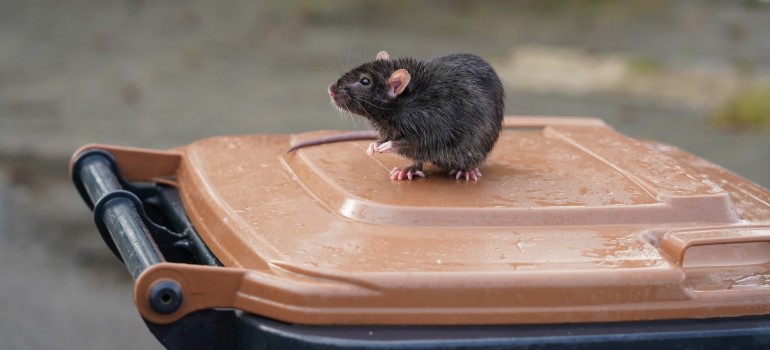
One of the UK’s most common pests is the rat, specifically the Norwegian and Brown species. Rats are known to be very adaptable creatures. They have an excellent sense of smell and hearing and can climb, jump, swim, and burrow with enviable skills. In favourable conditions, the rats’ population can grow rapidly and cause significant property damage.
That is why any sign of a rat infestation should be taken seriously and acted upon quickly. If you have noticed that your neighbour has rats and you’re wondering what you can do to prevent them from entering your property, you are in the right place!
In this article, you will find important advice on how to deal with rats coming from your neighbour’s house, as well as learn some of our tips on making your home inhospitable to pests.
Table of Contents
Why must rats be controlled?
The dangers of a rat infestation are numerous. Vermins can be very troublesome and pose real health hazards to homeowners. Some of the diseases known to be transmitted by rats can have serious consequences on human health. With that in mind, it is important to mention that every property owner has the legal responsibility to keep their home free of pests.
To give you more insight into why rats must be controlled, we’ve gathered below the main types of damage rats can inflict on people and their property:
- Rats transmit dangerous diseases, such as Salmonella (food poisoning) and Weil’s disease, which is a serious infection and can even be fatal for humans.
- They feed on human food sources and can contaminate food, water and cooking surfaces.
- Rodents inflict serious property damage by scratching or gnawing on furniture, water pipes and electrical cables (the latter may even cause an electrical fire hazard).
- Their gnawing habits have been known to disturb important utility services, like power supplies, or affect traffic light systems.
Although the list doesn’t fully cover the possible consequences of a rat infestation, we hope we have given you a good enough reason to act immediately when you notice the very first signs of the rodents, even if the pesky rats are in the neighbours’ garden.
Check also: Humane Methods for Handling Common Household Pests
Are you dealing with a rat infestation?
You don't have to be alone in the battle against pests. Hire a professional pest expert!
Call usWhat attracts rats to your house?
It’s always better, if possible, to take preventative measures in advance to keep rats away, rather than trying to fight an infestation when it is already ongoing. That is why to prevent rats from coming near your garden and house, you need to know the key factors that invite rodents to a property.
Here is what attracts rats to your house:
- Food: Since rats are omnivores, they can become attracted by various kinds of food sources left out in the open or such that are simply easily accessible.
- Water: Any form of water supply, such as leaky pipes, hoses and taps, or the presence of birdbaths and pet bowls, will be a convenient way for a rodent to quench its thirst.
- Shelter and warmth: The warmth and comfort of houses can look pretty attractive to rats in their search for a warm and safe place to nest, breed and hide from other animals.
- Nesting materials: Rat nests can consist of clutter, like shredded paper, dried plants, cardboard and other soft materials.
- Vegetation: Fruit trees in your garden, houseplants, seeds and other vegetation can serve not only as rats’ food but also as nesting material or an easy path to your roof.
- Waste: Rats really do eat everything, even food digested by other animals. So, if you have pets or open trash cans, your house has a higher chance of becoming a rat’s target.
- Entry points: If your fence or house has plenty of open access points, then you are not making it very difficult for vermin, like rats, to enter your property.
Now that you know what attracts rodents, you should take measures to proof your property appropriately against troublesome vermin. However, if you have already noticed signs of a rat infestation on your neighbour’s property, you will probably need to take more serious actions to handle the situation.
Read also: Who Is Responsible for Rats in Drains?
What should I do if my neighbour has rats?
Before we jump straight to what you can do when your neighbour has rats, we need to clarify that if you are a tenant, you should speak to your landlord first. As part of the common law, landlords are responsible for removing a pest infestation within their property. Even if the pests are coming from a neighbouring house, since that adversely affects the rental property and the tenants, the landlord is the one, who should try to deal with the problem.
So, our advice is, before trying to handle the situation yourself, inform your landlord of the neighbour’s rat infestation and let them take it from there.
On the other hand, if you are a landlord or owner of a property that is in proximity to a house suffering from the presence of rats, here is what you should do:
- Have a polite conversation. You may have noticed rats creeping from your neighbour’s house or you’ve seen only the signs of their presence, but that doesn’t mean your neighbour has become aware of them just yet. Your first step is to talk to your neighbour. Approach them politely and share your concerns.
- Seal off any possible entrance points. While waiting for your neighbour to take action, block any potential entry points and gaps, whether in your fence, garage, basement, attic, or cellar.
- Hire a certified pest control company. In case there is still a lack of action on your neighbour’s end, call an exterminator. They will be able to assess the situation, repel the rodents to the best extent possible and advise you on what actions you can take to prevent rats from returning.
- Inform your local authority’s environmental health department. This should be your last resort. If the problem persists and you feel that the situation poses a danger to human and environmental health, contact your council. They will make an inspection and decide on how to proceed.
In the meantime, try to make your house less attractive to pests. If there is no reason for your neighbour’s rats to come over to your place, then you won’t have to deal with them.
Check also:
How to Get Rid of Rats in the Attic
How to keep rats away
Whether you’ve decided to contact your local authorities or directly call a pest control company, you can still try implementing some measures to make your home less attractive to rodents for the time being.
Once you know the best way to get rid of rats and what things attract the vermin to a house, you can easily take appropriate actions and ensure that there is nothing that entices the rodents into your garden. This will immediately reduce the risk of having your neighbour’s rats come to your house.
Here are some tips on how to make your home rat-proofed:
- Eliminate potential food and water sources: Don’t store food on your kitchen counter. Stop feeding birds, or at least reduce the husk food, which leaves residue. Eliminate water sources, such as pet bowls and birdbaths. Don’t leave pet food outside, or remove and wash the bowl once your pet has finished eating.
- Keep your garden clutter-free: Cut your grass regularly and dispose of fallen leaves and fruit as soon as possible. Keep your firewood logs above ground level and as far away from the property as possible. Clear your gutters out regularly.
- Use natural rat repellents: Spread peppermint oil, chilli oil, black pepper, onion or cloves in your garden. Rats don’t like the smell of those things and will make sure to avoid them.
Rats always follow the paths that lead them to food and water. But by cutting off their access to these things, you rodent-proof your house and reduce the chance of having to deal with your neighbour’s rat infestation.
Takeaways
- Prompt rat control is crucial, as rats pose serious health hazards to people and can inflict significant property damage.
- Rats are mainly attracted to food and water sources, shelter, waste, and clutter.
- If your neighbour has rats, try talking with them first and if they don’t take measures, contact your council or an exterminator.
- A neatly maintained garden, correctly stored food and sealed gaps in property structures are some of the things that make your home rat-proofed.





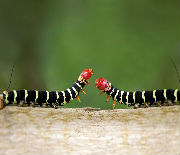
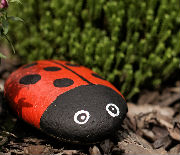
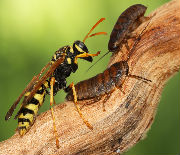
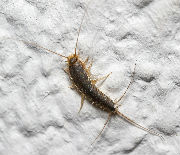
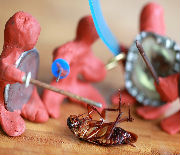
Found this so helpful we are having huge problems with one house and they are now entering my property .the neighbour refuses to do anything